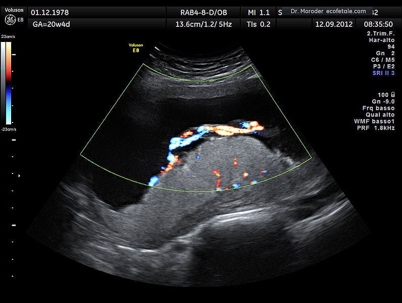Schedule a Consultation
216-621-3000Schedule a Consultation
216-621-3000
Placental infarction (sometimes called placental cerebral infarction) is the interruption in blood flow between the placenta and the baby. Minor infarctions (lesions or masses on the placenta) are present in about a quarter of all normal pregnancies, and do not affect the pregnancy. More serious infarctions, however, can directly cause fetal distress and long-term complications, including developmental delays and cerebral palsy. Infarctions are typically detected by ultrasound.
There are number of known causes of placental infarction, including:
The first sign of a placental infarct may be bleeding or spotting, though these signs are not always present. When a doctor detects placental infarction, particularly close to the due date, it may be necessary to perform more frequent ultrasounds to track the health of the placenta, and to ensure that the baby is getting the necessary blood and nutrients. Non-stress testing will also help to ensure the continued health of the baby.
Doctors and other health care providers must be on the lookout for placental infarction and other problems during pregnancy. If they do not timely react, the consequences to the baby can severe and permanent. If you have questions about whether your medical providers did everything possible during your pregnancy, contact our birth injury attorneys in Cleveland at (440) 252-4399 or online for a free consultation.

